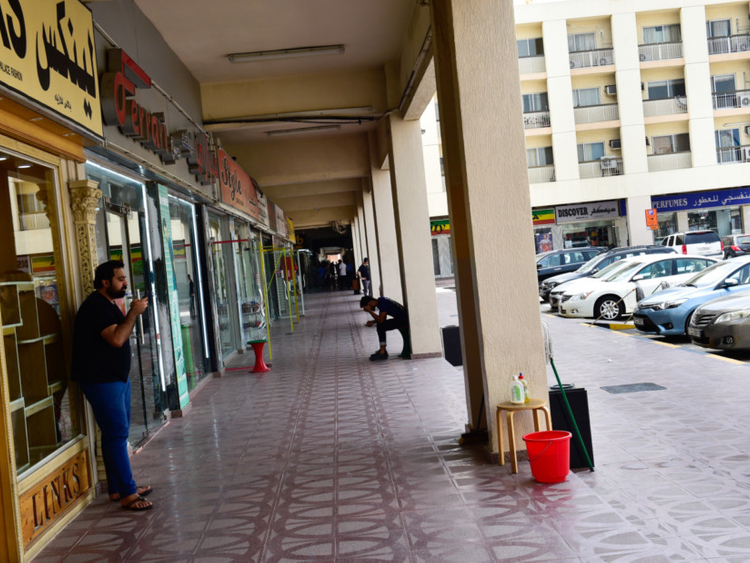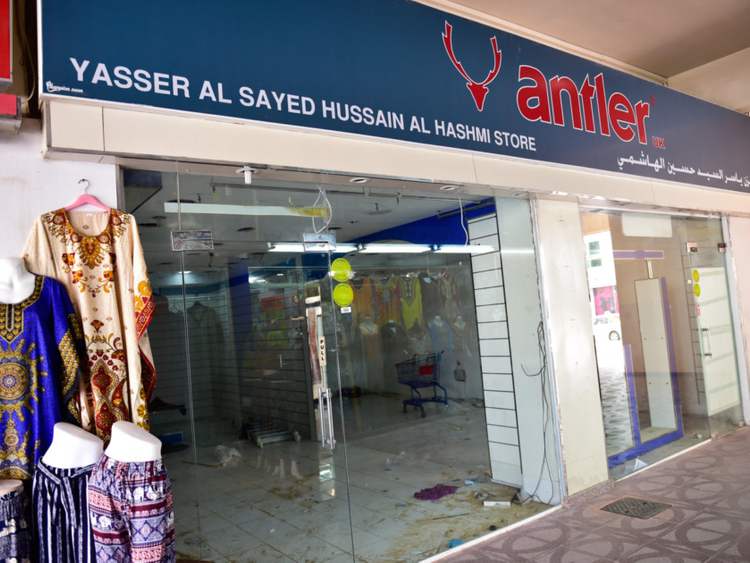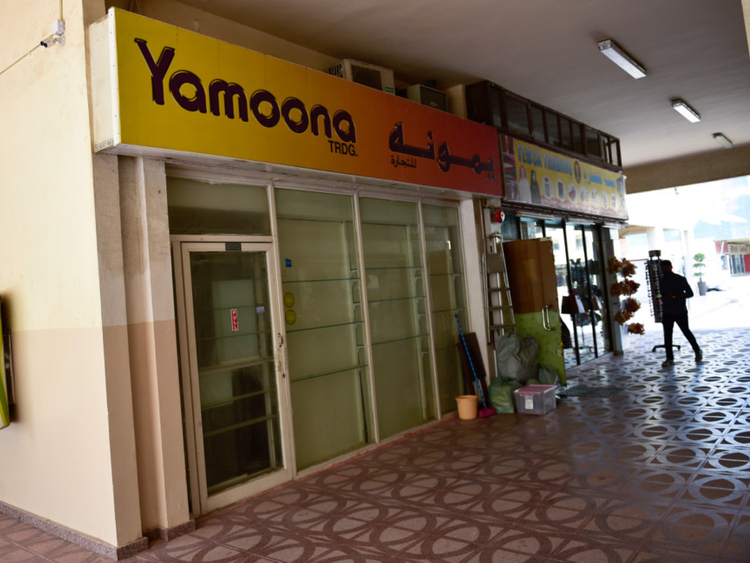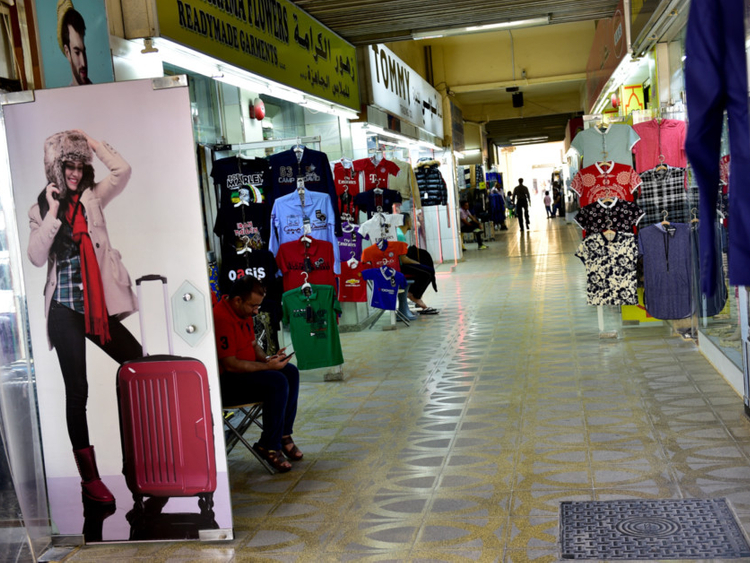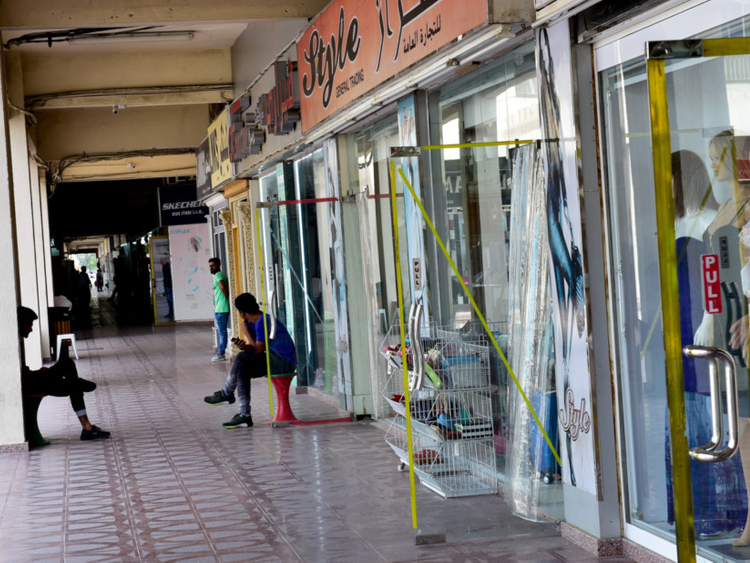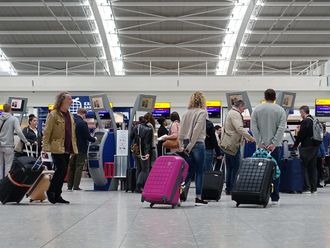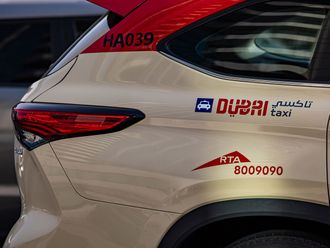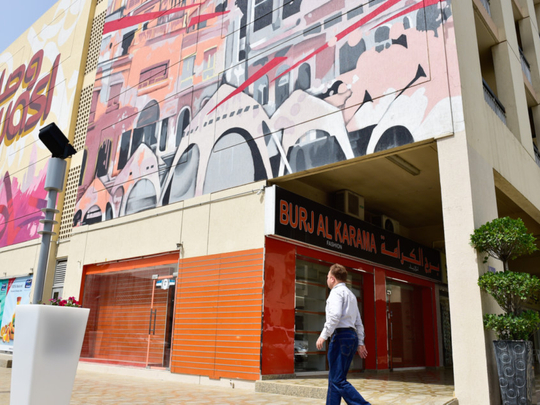
Dubai: The long corridors that used to be dotted with mannequins and cloth racks and always abuzz with tourists and residents are deserted. Shopkeepers, who used to compete in soliciting customers, sit idle most of them time.
Karama Shopping Complex, which was once a hub of retail shopping in Dubai and probably the earliest version of a strip mall in the emirate, is now bracing for the toughest summer ahead.
According to shopkeepers, who gave only their first names, business has gone down drastically in several shops in the building complex, also known as Karama Market [not to be mistaken for Karama Centre or Al Karama Market that sells fish in a nearby building].
There are over 300 retail shops located on the ground floors of six buildings, the upper floors of which are occupied by residents in the bustling neighbourhood of Karama. Last year, the four-decade-old complex got a facelift with artistic rendering on the walls.
The mammoth paintings on the walls of these buildings along both sides of the street instantly became the talk of the town and huge hits on social media. However, they did not help much in attracting more footfall in the shops as expected, the shopkeepers said.
Some shops have closed forever while some others have been temporarily shut down by authorities for selling fake goods, they told Gulf News.
Sami, an Iranian shopkeeper, said many shops have reported 50 to 70 per cent drop in business in recent times.
“Business is coming down every year. Before, you could never get shops to rent here. Earlier, people used to sublet the shops for very high rents. Now, all that has stopped and there are shops lying closed,” said Sami, who has been working in a garment shop in the complex for 12 years.
“This was known as a great place for super fake designer goods. Except for some sport stores, most of them used to sell fake goods,” he said.
The long arm of the law has fallen on many of those shops as authorities intensified crackdown on fake goods, especially on the counterfeits of high-end brands.
Shopkeepers said fines ranging between Dh35,000 and Dh75,000 have been slapped on some stores in the complex for selling counterfeit products. Undercover officials posing as customers have also helped conduct raids on premises outside the complex where shops used to stack illegal goods.
“You can’t find those fake products in most of the shops now. Almost all have stopped the illegal sale of goods from rooms outside the market also,” said Rafeek, an Indian shopkeeper.
His friend, Siddique, said there is a ban on displaying the goods on the corridors. “It was one way of attracting the customers. But that has also been banned. So, all goods have gone indoors. Sometimes we are not even allowed to keep the chairs to sit on the corridors.
“Just watch some of the YouTube videos of the market from 2010 and 2011. You can see the difference in the whole look, feel and ambience of the market,” said Rafeek.
A proliferation of malls in every nook and corner of the city, the increase in rents over the years and the parking lots in front of the shops becoming paid parking throughout the day have also been cited as reasons that affected business in the market.
Sami also cited a lack of proper road signs to the market as one of the reasons for fewer footfalls of tourists. “It has become difficult for people to find this place. There are lots of developments and road works happening around.”
Customers who have been to the market earlier also say that it is not what it used to be.
Aga Prazybyla, a Polish resident of Abu Dhabi, who took her visiting in-laws to the market on Thursday, said: “I am not a big fan of this place as such. But this is a different Dubai and different shopping experience. That is why I brought them here. The first time I came here was some four years ago when I was in Dubai. I can see a lot of difference now. This is not how this place used to be. Now everyone is more careful, I believe.”
She said the display, quality and range of products have become less appealing. “Now it’s getting hot. So, I think there will be much less people.”
Rafeek said the shopkeepers are pinning their hopes on Ramadan and Eid shoppers to tide over the dull business during the summer months.


